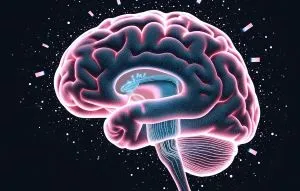
Nature has always been a source of fascination and inspiration for human beings. From the majestic mountains to the serene oceans, the natural world has the power to evoke emotions, spark creativity, and even influence our behavior. However, the relationship between nature and human beings is not without its paradoxes. In this article, we will explore the paradox of nature's impact on human beings, highlighting the contradictions and complexities that arise from our interactions with the natural world.
The Biophilia Paradox:
One of the most intriguing paradoxes of nature's impact on human beings is the biophilia paradox. Biophilia, or the love of nature, is a fundamental human instinct that drives us to connect with the natural world. However, this love for nature can often lead to its destruction. For instance, our desire to experience the beauty of nature can result in over-tourism, habitat destruction, and pollution. This paradox highlights the tension between our desire to appreciate and preserve nature, and our tendency to harm it in the process.
The Paradox of Human Nature:
Another paradox that arises from our interactions with nature is the paradox of human nature. Humans are capable of doing contradictory things at the same time, often justifying our actions with rationalizations and excuses. For example, we may publicly support environmental conservation, but continue to engage in environmentally harmful behaviors, such as using single-use plastics or driving gas-guzzling cars. This paradox reveals the complexities of human nature, highlighting our capacity for self-deception and rationalization.
The Paradox of Conservation:
The paradox of conservation is another example of the complex relationship between nature and human beings. While conservation efforts aim to protect and preserve natural habitats, they can often have unintended consequences. For instance, the creation of protected areas can lead to the displacement of indigenous communities, or the introduction of non-native species can disrupt the delicate balance of ecosystems. This paradox highlights the need for nuanced and context-specific approaches to conservation, ones that take into account the complex interplay between human and natural systems.
The Paradox of Peak Impact:
Finally, the paradox of peak impact suggests that human beings may be capable of reducing our environmental impact, even as our population and consumption continue to grow. This paradox is rooted in the idea that technological advancements and economic growth can lead to increased efficiency and reduced waste, ultimately resulting in a decrease in our environmental footprint. For example the shift from fossil fuels to renewable energy sources or the adoption of sustainable agriculture practices can lead to a reduction in greenhouse gas emissions and habitat destruction.
In conclusion, the paradox of nature's impact on human beings is a complex and multifaceted phenomenon. By exploring these paradoxes, we can gain a deeper understanding of the intricate relationships between human and natural systems, and work towards developing more sustainable and equitable approaches to conservation and environmental stewardship.







